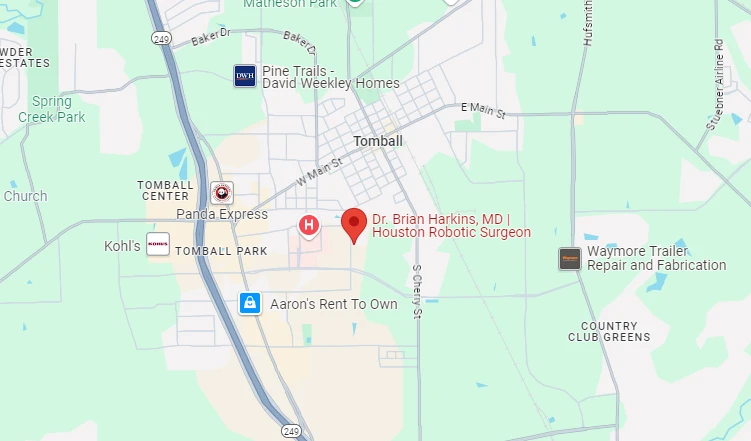
Colorectal surgery is a surgical subspecialty that treats benign and malignant disorders of the colon, rectum, and anus. Whether you’re facing colon cancer, a stubborn hemorrhoid, a complicated fistula, or progressive inflammatory bowel disease, understanding every step—from diagnosis to full recovery—reduces anxiety and improves outcomes. What to expect with colorectal surgery in Houston, TX? It’s a question many patients ask before preparing for procedures that involve the colon, rectum, or anus. Patients can expect a hospital stay of 2-7 days, with complete recovery often spanning 2-3 months. Choosing Houston means access to multidisciplinary cancer programs, world-class robotics, and mild weather that encourages early walking.
Every procedure aims to remove disease, restore bowel function, and protect long-term quality of life. Yet each case—anal cancer, rectal prolapse, or a bleeding polyp—demands personalized surgical techniques and follow-up care.
Houston hospitals emphasize minimally invasive surgery. Robotic surgery offers 3-D magnification and wristed instruments that improve precision in the tight pelvic floor area, leading to faster recovery after surgery and fewer urinary or sexual side effects.
All surgical procedures carry risks such as bleeding, infection, or anastomotic leak. A board-certified colorectal surgeon, oncologist, gastroenterologist, and nutritionist form a multidisciplinary team to optimize cancer care and enhance safety. For many patients, surgery provides the most effective treatment to eliminate cancer and relieve abdominal pain.
Preparation starts weeks in advance. Organizing lab work, modifying medications, optimizing nutrition, and arranging caregiver support ensure smoother recovery throughout the Houston area.
| Time Before Surgery | Key Tasks | Houston Tips |
|---|---|---|
| 3–4 Weeks | Stop smoking, adjust blood-thinners, boost protein | UTHealth and Houston Methodist run pre-hab classes focused on minimally invasive techniques and nutrition. |
| 10–14 Days | Pre-op labs, EKG, anesthesia visit | Many hospitals offer same-day “one-stop” testing to limit travel across Greater Houston. |
| 7 Days | Arrange caregiver, fill pain prescriptions | Account for West Houston traffic; try to stay near the cancer center to provide ease of access. |
| 2–3 Days | Begin clear-liquid diet, bowel prep | Hydrate well; Texas heat can dehydrate you even indoors. |
| Night Before | Shower with antimicrobial wash, pack bag | Bring loose cotton clothing that tolerates warm temps and protects the surgical site. |
Look for fellowship training in colon and rectal surgery, a high case volume in robotic colorectal procedures, and excellent patient reviews. Houston Methodist, Baylor St. Luke’s, Memorial Hermann, and specialty practices across the Greater Houston community all house board-certified experts.
Colorectal surgery is a surgical service often requiring pre-authorization. Financial counselors at each cancer program decode deductibles, co-pays, and out-of-network pitfalls.
Expect check-in, IV placement, anesthesia review, and detailed questions about colorectal surgery by the team. Enhanced Recovery protocols, common in Houston, rely on multimodal anesthesia—IV acetaminophen plus nerve blocks—to curb narcotic use and maintain bowel movements post-op.
Ask why your surgeon recommends a specific method and how it influences function and quality of life long term.
You’ll work closely with nurses, physical therapists, and dietitians. Early ambulation prevents blood clots, and breathing exercises protect lung function. Houston ERAS teams specialize in rapid transition from IV to oral medication, limiting constipation and supporting quick return of bowel movements.
Discharge includes a 24-hour hotline, stoma care (if a colostomy was needed), and written answers to common questions about colorectal surgery. Monitor the surgical site for redness or drainage, and keep walking to restore gastrointestinal motility.
Light household tasks resume in week 2. Pelvic floor exercises, supervised by physical therapists, can reduce urgency or incontinence after rectal surgery. Avoid lifting more than 10 lbs until cleared by your surgeon.
Energy improves and many patients drive by week 3, return to desk jobs by week 4-6, and restart running or heavy lifting around week 8-10. Follow-up colonoscopy or imaging may be scheduled to confirm clear margins and guide further cancer treatment, if necessary.
Report any red flags promptly to protect long-term bowel and overall health.
Mild winters encourage outdoor walking, but summer heat demands early-morning or evening exercise, breathable clothing, and electrolyte drinks.
Before surgery, you’ll undergo pre-op testing, dietary changes, and medication adjustments. During the operation, you may receive laparoscopic or robotic treatment depending on your diagnosis. Afterward, expect a 2–7 day hospital stay, progressive diet stages, and guided activity to regain strength. Houston’s colorectal teams focus on comfort, safety, and full recovery using the latest technology and care models.
Not always. Temporary ostomies are common after low rectal surgery to protect healing tissue. Your surgeon will outline whether a stoma is likely and, if so, how and when reversal happens.
Soft solids often start by day 2 if your bowels wake up on schedule. Chew thoroughly, eat small portions, and stop at the first sign of bloating.
Houston centers hold multidisciplinary tumor boards each week. Surgeons, oncologists, and radiologists review your case and recommend additional chemo or radiation only if needed.
Short flights may be safe after week 3, but always clear travel plans with your doctor. Wear compression stockings, stay hydrated, and walk the aisle every hour.
Both minimally invasive techniques yield good outcomes, yet robotics offer greater dexterity and 3-D vision in the narrow pelvic space. For low rectal cancer close to the anal sphincter, the robotic platform may improve nerve preservation and reduce positive margins. Ultimately, surgeon experience and tumor location guide the best choice.
A fiber-rich diet, regular exercise, maintaining healthy weight, limited alcohol, and quitting smoking all reduce recurrence risk. Scheduling surveillance colonoscopies as advised and collaborating with a nutritionist keep you proactive. Vitamin D optimization and management of metabolic conditions like diabetes further support long-term cancer care.
Active Crohn’s disease or ulcerative colitis can slow wound healing and increase leak risk. Your multidisciplinary team may use steroids, biologics, or nutrition therapy before surgery to calm inflammation. Surgeons might also plan staged operations or a temporary ileostomy to protect new bowel connections in severe cases.
Yes, combining procedures is feasible in select patients, reducing anesthesia exposure. However, surgeons weigh infection risk and added operative time. For large or thrombosed hemorrhoids causing severe bleeding, simultaneous treatment can improve postoperative comfort and prevent repeat trips to the OR.
TAMIS is a transanal approach to remove early rectal tumors or large polyps without abdominal incisions. Using specialized ports and laparoscopic instruments, surgeons excise lesions under direct vision. Recovery is faster, and bowel function returns quickly, though suitability depends on tumor depth and location.
Absolutely. Pelvic floor physiotherapy strengthens supportive muscles, improves constipation, and reduces incontinence after surgery procedures for prolapse. Therapists teach biofeedback and targeted exercises that enhance continence and quality of life, often beginning 4-6 weeks post-op once surgical sites have healed.
Guidelines recommend the first surveillance colonoscopy within one year of resection. If clear, the next occurs at three years, then every five years. Patients with hereditary syndromes, multiple polyps, or inflammatory bowel disease may need shorter intervals. Your board-certified colorectal surgeon tailors timing to your risk profile.
Open surgery remains important for bulky tumors invading adjacent organs, extensive adhesions from prior operations, or emergency scenarios like perforation with widespread contamination. While minimally invasive techniques dominate elective cases, a surgeon skilled in general surgery and colorectal open approaches ensures safe care when complexity demands it.
The pathologist examines the removed specimen to stage cancer, assess margins, and count lymph nodes. Detailed reports guide oncologists on adjuvant therapies. For benign diseases, pathology confirms diagnosis, ensuring no unexpected malignancy was missed. Collaborative review is basic to multidisciplinary cancer treatment plans.
Plan stops every 60–90 minutes, stay hydrated with water or electrolyte drinks, and pack low-fiber snacks to minimize urgency. Over-the-counter loperamide can slow transit if approved by your surgeon. Having a portable seat cushion eases abdominal pressure, and loose clothing helps you react quickly when nature calls.


Dr. Brian Harkins is a renowned surgeon specializing in advanced, minimally invasive, and robotic surgical techniques. With a dedication to innovation and personalized patient care, he has transformed countless lives by delivering exceptional outcomes.

I want a website like this, where do i start?